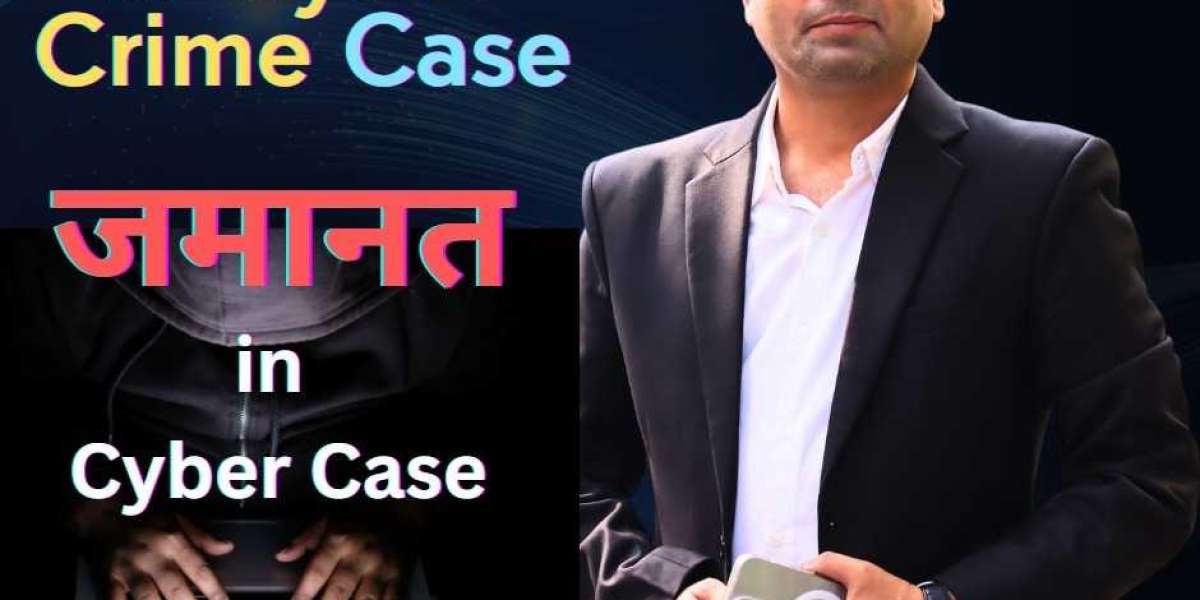In today’s digital age, cybercrime is a rapidly growing threat. With the increased reliance on technology, individuals and businesses are more vulnerable than ever to cyberattacks. Cybercriminals exploit weaknesses in online security systems, stealing sensitive information and causing irreparable damage. However, there are legal remedies for cyber crime that victims can pursue to seek justice and protection. Advocate Deepak, a prominent legal expert, specializes in addressing cybercrime-related issues and ensuring justice for victims.
Understanding Cybercrime
Cybercrime encompasses a wide range of illegal activities conducted through digital platforms. It includes hacking, identity theft, phishing, online fraud, cyberstalking, and the distribution of malicious software. With the increasing sophistication of these crimes, victims often feel powerless to defend themselves. Understanding the types of cybercrime is the first step toward combating them effectively.
Common Types of Cybercrime
- Hacking: Unauthorized access to computer systems to steal or manipulate data.
- Identity Theft: Using someone’s personal information without consent for fraudulent purposes.
- Phishing: Deceptive tactics to obtain sensitive information such as passwords and credit card details.
- Cyberbullying and Cyberstalking: Harassment or threats made through digital platforms.
- Online Fraud: Financial scams conducted over the internet.
With the rise of such crimes, it is essential to know the legal remedies for cyber crime and seek help from seasoned professionals like Advocate Deepak.
Legal Framework for Cybercrime in India
India has a robust legal framework to address cybercrime, primarily through the Information Technology Act, 2000 (IT Act). The act provides a foundation for combating cybercrimes and safeguarding the rights of individuals and organizations.
Key Provisions of the IT Act
- Section 66: Addresses hacking and prescribes penalties for unauthorized access.
- Section 66C: Punishes identity theft.
- Section 66D: Focuses on punishment for cheating through impersonation using digital platforms.
- Section 67: Deals with the publication or transmission of obscene material online.
- Section 69: Empowers authorities to intercept and monitor communication in the interest of national security.
These provisions are pivotal in addressing various forms of cybercrime. Advocate Deepak, with his profound understanding of the IT Act, ensures that victims receive appropriate legal remedies for cybercrime.
Steps to Take if You Are a Victim of Cybercrime
If you have fallen prey to cybercrime, taking prompt action is crucial. Here are the steps to follow:
- Report the Crime: File a complaint with your local cybercrime cell or police station. Online portals like the National Cyber Crime Reporting Portal in India allow victims to report incidents conveniently.
- Preserve Evidence: Retain all evidence, including emails, screenshots, and transaction records, to support your case.
- Consult a Legal Expert: Engage an experienced lawyer like Advocate Deepak, who specializes in cyber law, to guide you through the legal process.
- Seek Judicial Remedies: Depending on the severity of the crime, you can file civil or criminal cases to claim damages or penalize the perpetrator.
Advocate Deepak’s expertise ensures victims receive comprehensive support and guidance in pursuing legal remedies for cyber crime.
Judicial Remedies for Cybercrime Victims
The Indian judiciary provides several remedies for cybercrime victims, which include civil, criminal, and administrative actions. These remedies aim to compensate victims, penalize offenders, and deter future crimes.
1. Civil Remedies
Victims can file civil suits to claim compensation for financial losses, emotional distress, and reputational damage caused by cybercrimes. Under the IT Act, Section 43 provides compensation for unauthorized access and data breaches.
2. Criminal Remedies
Criminal remedies involve filing an FIR (First Information Report) against the accused under relevant sections of the IT Act and the Indian Penal Code (IPC). Sections such as 420 (cheating), 500 (defamation), and 509 (insulting modesty) are often invoked alongside the IT Act provisions.
3. Administrative Remedies
Administrative remedies involve reporting the crime to cybercrime cells, CERT-In (Indian Computer Emergency Response Team), and other regulatory bodies for prompt action.
Advocate Deepak ensures victims receive the best possible outcome through these judicial avenues, providing tailored solutions for each case.
Challenges in Addressing Cybercrime
Despite the available legal remedies for cyber crime, there are significant challenges in combating it effectively:
- Lack of Awareness: Many victims are unaware of their rights and the legal options available.
- Jurisdiction Issues: Cybercrimes often transcend geographical boundaries, complicating jurisdiction.
- Technical Complexity: Gathering admissible evidence requires technical expertise.
- Delays in Justice: Legal proceedings can be time-consuming, leaving victims frustrated.
Advocate Deepak addresses these challenges by providing comprehensive legal support and leveraging his expertise to expedite the justice process.
Advocate Deepak’s Approach to Cybercrime Cases
As a leading legal expert in cyber law, Advocate Deepak has an impressive track record of handling complex cybercrime cases. His approach includes:
- Personalized Consultation: Understanding the victim’s situation and providing tailored advice.
- Strategic Action: Formulating effective legal strategies to address specific cybercrimes.
- Collaborative Efforts: Working with cybersecurity experts to gather evidence and build strong cases.
- Proactive Advocacy: Representing clients effectively in courts and ensuring their rights are protected.
His dedication and expertise make Advocate Deepak a trusted name in providing legal remedies for cybercrime.
Preventive Measures Against Cybercrime
While legal remedies for cybercrime are essential, prevention is equally important. Here are some measures individuals and organizations can adopt:
- Strengthen Cybersecurity: Use strong passwords, enable two-factor authentication, and update software regularly.
- Educate Employees: Conduct training sessions to raise awareness about phishing scams and other threats.
- Monitor Online Activity: Regularly check for unauthorized access or unusual activities.
- Report Suspicious Activities: Immediately report potential threats to authorities.
By combining preventive measures with legal support from experts like Advocate Deepak, individuals and businesses can mitigate the impact of cybercrime.
Conclusion
Cybercrime poses a significant threat in the modern world, but victims are not powerless. With robust legal remedies for cyber crime under the IT Act and the guidance of experts like Advocate Deepak, victims can seek justice and protection. From reporting crimes to pursuing judicial remedies, Advocate Deepak’s expertise ensures a seamless process for victims.
Remember, the fight against cybercrime begins with awareness and action. If you or someone you know has been a victim, do not hesitate to seek help. Advocate Deepak is committed to providing the legal support you need to overcome the challenges posed by cybercrime and achieve justice.
With the right approach, cybercrime can be effectively addressed, ensuring a safer digital space for everyone.
Contact Advocate Deepak Today
If you’re dealing with a cybercrime issue in Noida, don’t wait. Advocate Deepak is here to provide the legal support you need. With his expertise, you can rest assured that your case is in capable hands.
Contact Number: +91-7303072764
Office Location: Noida, Uttar Pradesh
Take the first step towards justice today with Advocate Deepak, the top advocate for cybercrime cases in Noida. Let his expertise be your shield against the ever-growing threat of cybercrime.
Vist:https://bestcybercrimelawyer.in








